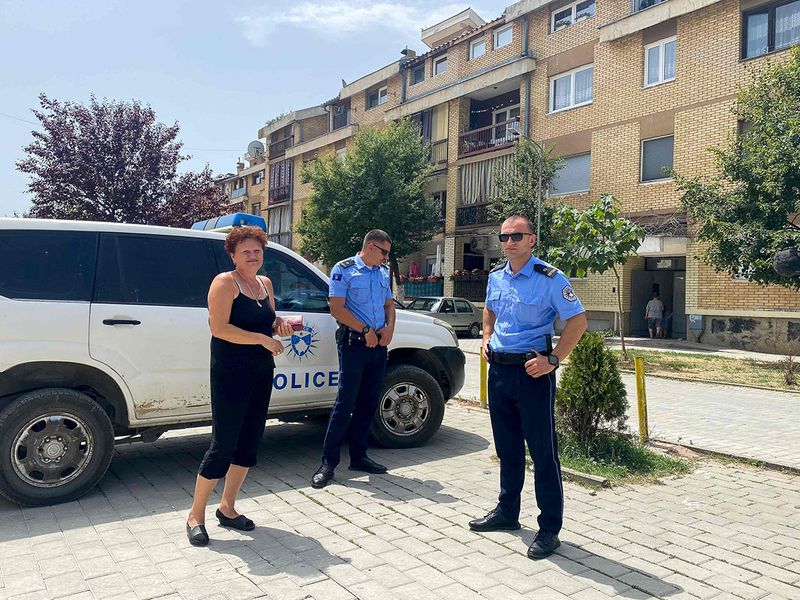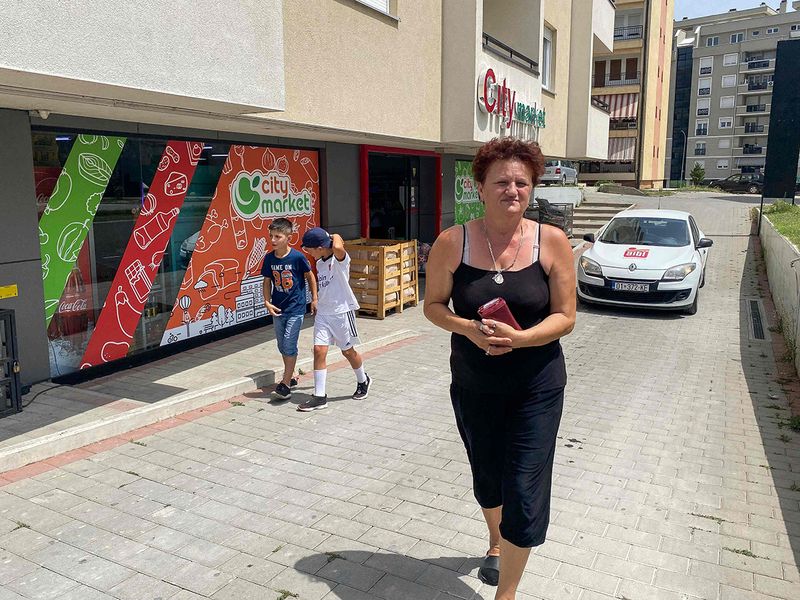
Gjakova, Kosovo: When Dragica Gasic tried to buy groceries in a local store, the Albanian owner barred her from entering. Her offence? Being the first and only Serb to return to this Kosovar town, which still bears the scars of a decades-old conflict.
More than 20 years ago, Gasic and her two young sons were among tens of thousands of Serbs who fled Kosovo after a bloody conflict between Serbian forces and ethnic Albanian pro-independence fighters.
After the guns went silent, some 13,000 Serbs gradually returned to their ancestral homes in several enclaves, but none returned to Gjakova - or Djakovica, as Serbs call the southwestern town.
That was until June, when 59-year-old Gasic, who worked as a cleaner during her exile in Serbia, decided it was time to go home.
"All my life I thought and I dreamed of my apartment and returning to Gjakova... I gave birth to two children here, I had the best years of my life here," Gasic told AFP while sitting inside a bare flat where a cardboard box serves as a temporary table.
"I was happy here, living alongside my Albanian neighbours and colleagues. Then the war came and everything went upside down."
Her return stirred uproar in the town.

Gjakova is still healing the wounds left over after the late-1990s war. The town of some 40,000 was ravaged by Serb forces, suffering "the most intense violence committed against civilians of all the major cities in Kosovo," according to Human Rights Watch (HRW).
Some 1,500 locals were killed - around 12 percent of the total number of victims during the conflict in Kosovo. Around 200 residents of the town are still listed as missing.
Atrocities included the massacre of 20 people in a single home, aged between two and 73, according to HRW.
Survivors claimed local members of the Serb community helped Serbian forces carry out the slaughter.
Majority ethnic-Albanian Kosovo unilaterally declared independence from Serbia in 2008, a move still not recognised by Belgrade and its allies China and Russia. Kosovo's independence has been recognised by about 100 countries.
Constant hostility
Gasic had faced constant hostility from neighbours. They curse at her in the street, throw rocks at her balcony and relentlessly bang on her front door, she says.
Her food and diabetes medicine were stolen during a break-in at her home. Police, now providing round-the-clock protection at her home, have arrested a suspect.
AFP reporters witnessed the incident at the grocery store, when the owner barred her from entering.
"Customers started boycotting me because of you!" the man told Gasic.
Neighbours made it clear they don't want Gasic living there.

"Every Serb who returns is a criminal, because every one committed crimes," Avni Ajdini, 46, who works as a bank security guard, told AFP.
"Her hands are dirty, too," said Ferdonije Qerkezi, 68, whose husband and four sons were killed by Serbian forces.
She and others say Gasic "worked for the interior ministry."
But Gasic said she merely worked as a cleaner in the local police station.
"I know that I did not do any harm to anyone", she said.
"I understand why they don't like to see me, I'm Serb!... The war filled everyone with rage and created chaos."
Local non-governmental organisations which emerged from the conflict have demanded authorities "expel" Gasic from the town.
"Gjakova is not ready to welcome the return of Serbs until the last remains of our loved ones are delivered," 11 NGOs said in a joint statement.
'No innocent Serb'
Nusrete Kumnova, a member of a local association for the families of missing persons, said Serbs should not be allowed to return as "wounds are still open".
"There is no innocent Serb," Kumnova told AFP with a blank expression, her gaze pinned on a photograph of her son Albion, one of those still missing.
Gjakova Mayor Ardian Gjini has sought to downplay the tension, with municipal elections just around the corner.
He told local media there was "no need to politicise this to an extreme."
The municipality filed a lawsuit asking the court to evict her over non-payment of rent since 1997.
Belgrade described the behaviour of the local officials as "systematic persecution".
Renowned lawyer Arianit Koci, one of the very few prominent figures in Kosovo who has voiced support for Gasic, said that while no one can dispute the "monstrous" crimes Serb forces committed in Gjakova, "the Serb woman should not be expelled".
"She is no threat to anyone," Koci wrote on Facebook.
Gasic says she has no intention of leaving.
"I will not return to Serbia. This is mine, I didn't take it from anyone. I'm in my apartment. I will endure everything."
"They can only return me dead."








